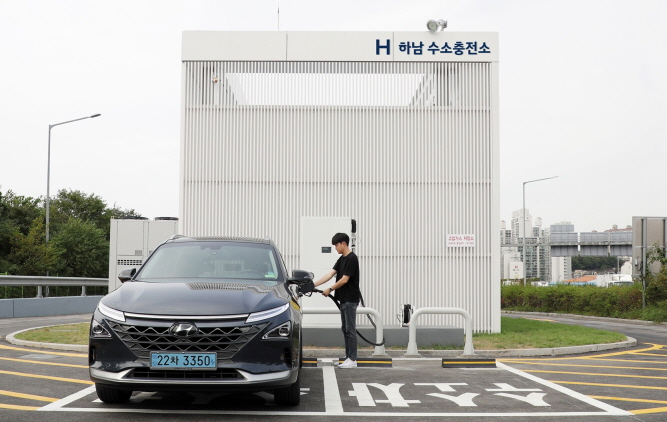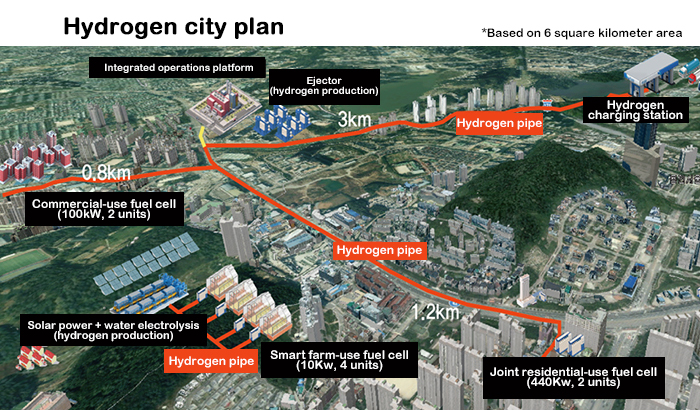
On the 10th of October, The South Korean Ministry of Land, Infrastructure, Transport, and Tourism announced the hydrogen pilot city promotion strategy at the National Inspection and Adjustment Conference held by the Prime Minister. On Sunday, December 29th, 2019 The Ministry of Land, Infrastructure, and Transport announced that it chose Ansan, Ulsan, Wanju, and Jeonju as ‘candidate cities for the hydrogen economy,’ and Samcheok as a city that will specialize in research and development (R&D) of hydrogen technology.
The government plan calls for an investment of 29 billion won (US$25 million) on each of the three candidate cities, half of which will be paid by regional governments.

The city of Ansan’s plan is to revive its aging industrial complexes by introducing hydrogen-related industries. Also, the city wants to use local tidal power to create an eco-friendly source of hydrogen.
The city of Ulsan’s plan is to create hydrogen from local oil plants to power building & refuel fuel cell electric cars.
“Hydrogen Cities” refers to cities that will use hydrogen as a fuel for major urban functions such as cooling, heating, electricity, and transportation will be created by 2022.
Multi-unit housing complexes and individual buildings in the pilot cities will use hydrogen as an energy source for cooling, heating, and electricity. In addition, to build a hydrogen energy-based transportation system, a hydrogen car and hydrogen bus charging station will be installed in a complex transfer center, parking lot, and bus garage in or near the city.
Read the most up to date Fuel Cell and Hydrogen Industry news at FuelCellsWorks




